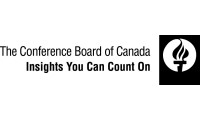Consumers must pay for every unit of water they use, and the price must reflect the cost of supplying it, the Conference Board of Canada recommends in a new report released last week.
“Water charges based on the value of property—or any other fixed measure that is not directly related to water consumption—cannot provide consumers with clear price signals,” said Len Coad, director, Environment, Energy and Technology. “A cultural shift is required in how we manage our water system. Instead of relying on the tax base and allowing users to pay a below-cost price, those who use the service should pay the full cost of water, including capital expenditures.”
Most Canadians pay less than $0.02 per litre for their water and wastewater service. Full-cost pricing would provide customers with a clear indication of the cost of providing water services and increase incentives to reduce consumption. As a basic step, says the report, universal water metering should be implemented immediately.
Secondly, many municipally-owned water and wastewater facilities and systems were built between the 1950s and 1970s, and are due for replacement. But capital investments by municipal governments have been in decline for more than 30 years, and some municipalities have been reluctant to pass costs on to users, allowing a significant but unsubstantiated infrastructure deficit to develop. Full-cost pricing would change the focus of water management from short-term cost savings to long-term service quality and sustainability.
The report, Improving Infrastructure Management: Municipal Investments in Water and Wastewater Infrastructure, is published as part of CanCompete, a three-year program of research and dialogue designed to help leading decision makers advance Canada on a path of national competitiveness.










[…] via: Water Canada […]
[…] via: Water Canada […]